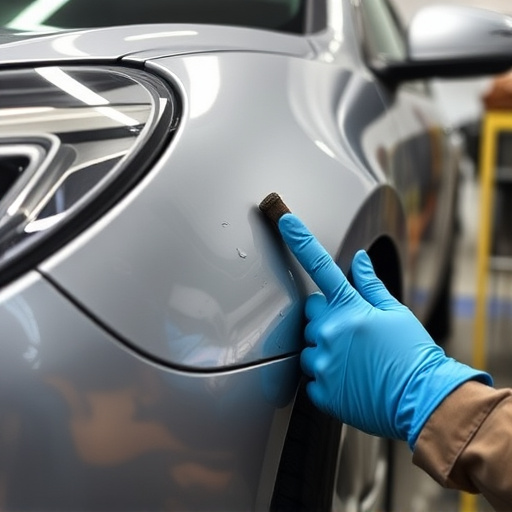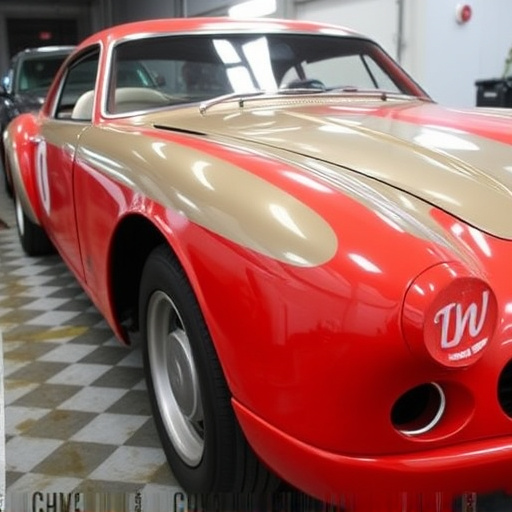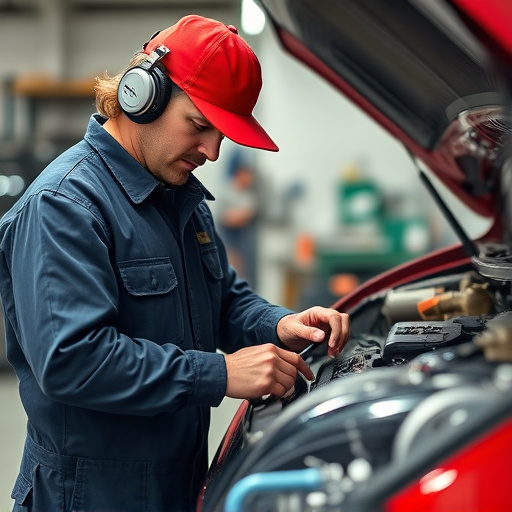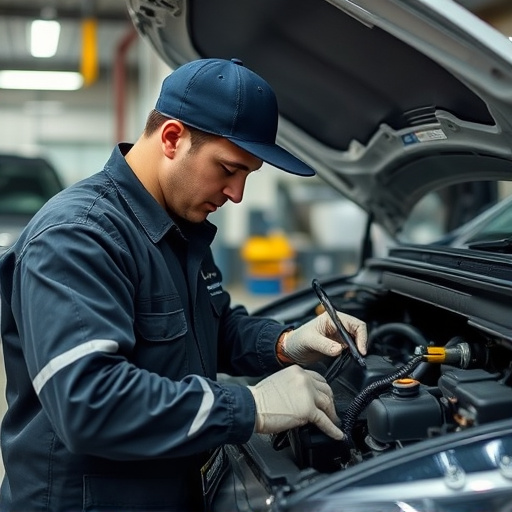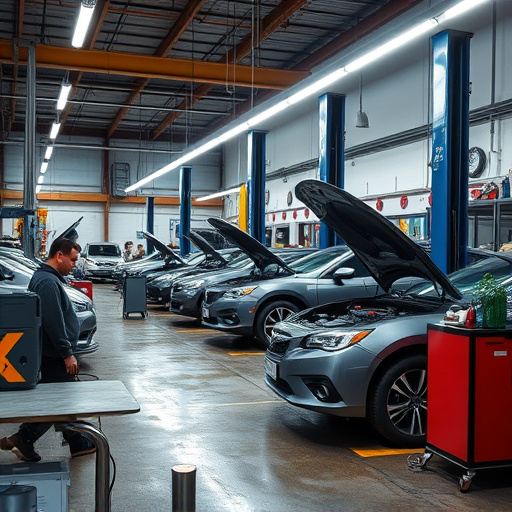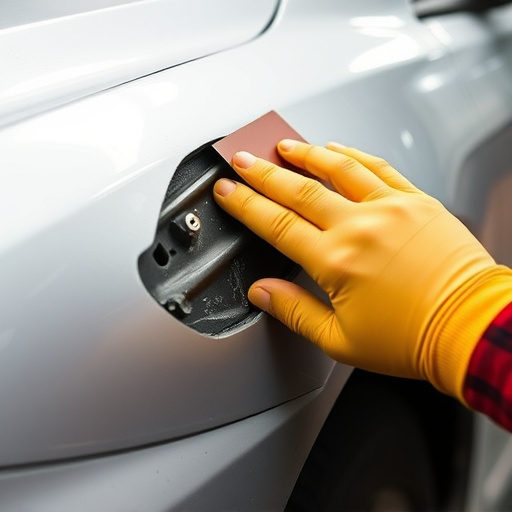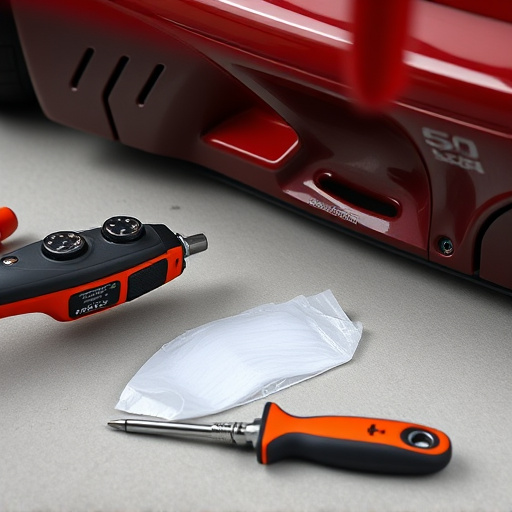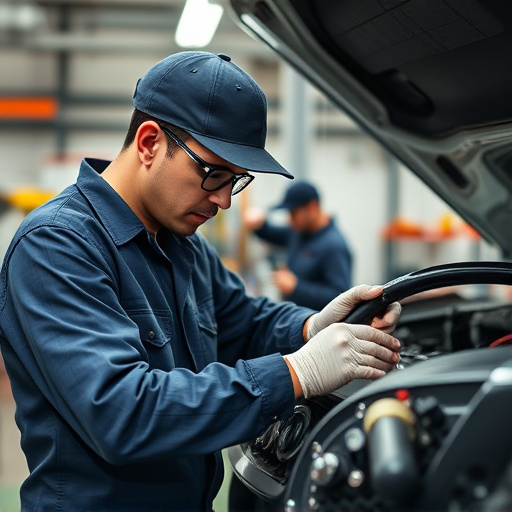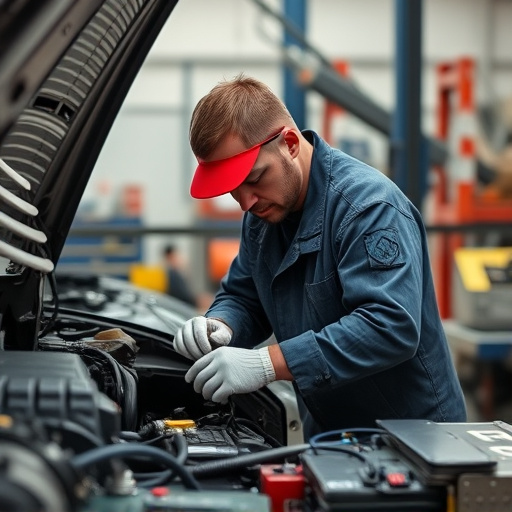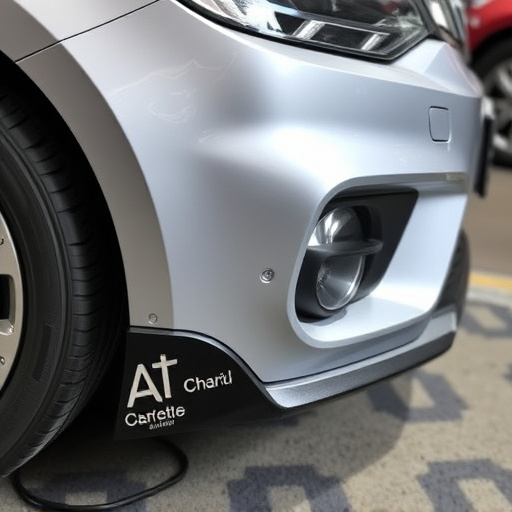Anti-corrosion materials are vital for protecting vehicles and equipment from moisture, oxygen, and chemicals, preventing rust and oxidation. In repair services, these materials extend lifespans, reduce costs, and maintain structural integrity. They're especially crucial in harsh environments, preserving aesthetics and value, and are recommended for fleet, body shops, and collision repair businesses.
In many industrial sectors, corrosion remains an insidious threat, silently weakening structures and compromising performance. Understanding this “silent enemy” is key to mitigating its devastating impact. This article explores why technicians frequently recommend using anti-correlation materials as a proactive defense. From the fundamentals of corrosion to the diverse applications of anti-corrosion coatings, we delve into the benefits these materials offer in demanding industrial settings.
- Understanding Corrosion: The Silent Enemy of Materials
- Role of Anti-Corrosion Coatings in Industrial Settings
- Benefits and Applications: Why Choose Anti-Corrosion?
Understanding Corrosion: The Silent Enemy of Materials
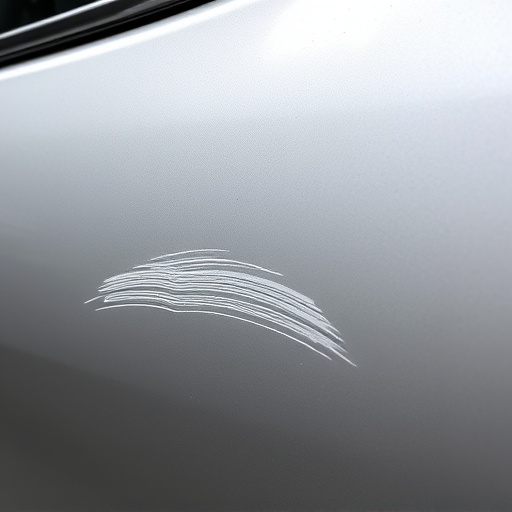
Corrosion is a natural process that occurs when certain materials interact with substances like water and oxygen, leading to their deterioration over time. Often described as the “silent enemy” of various materials, it can cause significant damage to structures, machinery, and vehicles if left unchecked. This phenomenon is especially detrimental in environments where moisture and varying weather conditions are prevalent.
Technicians in fields such as automotive repair, particularly in collision repair services and car paint repair, understand the importance of battling corrosion. A collision repair center, for instance, needs to employ anti-corrosion materials when restoring vehicles to ensure longevity and maintain structural integrity. By integrating these protective solutions into their processes, technicians can safeguard against rust, ensuring that vehicles not only look as good as new but also remain safe and reliable on the road.
Role of Anti-Corrosion Coatings in Industrial Settings
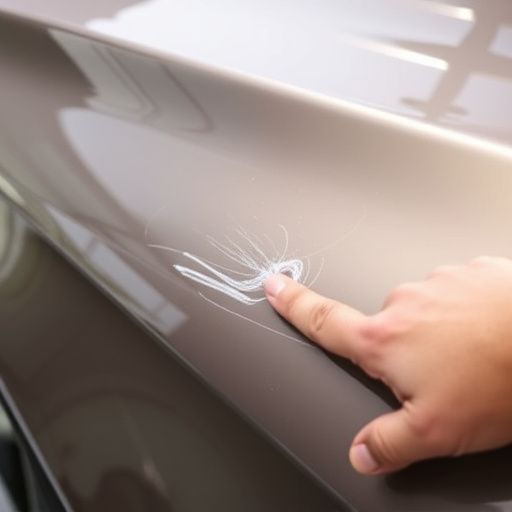
In industrial settings, where equipment and machinery are constantly exposed to corrosive elements like moisture, chemicals, and harsh environments, anti-corrosion coatings play a pivotal role in extending the lifespan of assets. These protective layers are highly recommended by technicians because they offer an effective barrier against corrosion, ensuring that metal surfaces remain intact and functional for extended periods. By preventing rust and oxidation, anti-corrosion materials contribute to enhanced equipment reliability and performance, which is especially crucial for critical industrial processes.
For businesses providing fleet repair services, body shop services, or collision repair shop operations, adopting anti-corrosion coatings can significantly reduce maintenance costs and downtime. In these sectors, where vehicles and their components are constantly in use and exposed to various environmental conditions, the benefits are manifold. From protecting structural integrity to preserving the aesthetic value of vehicles, anti-corrosion materials offer a long-lasting solution that promotes efficiency and safety across diverse industries.
Benefits and Applications: Why Choose Anti-Corrosion?
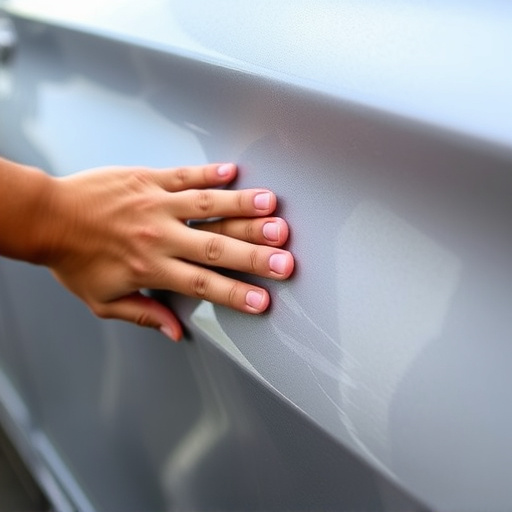
Choosing anti-corrosion materials offers a multitude of benefits for various industries, especially automotive sectors like fender benders and automotive body shops. One of the primary advantages is extended product lifespan, which translates to cost savings in the long run. These specialized materials create a protective barrier, shielding against elements that cause corrosion, such as moisture and salt. This protection prevents premature deterioration, ensuring components remain functional and intact for longer periods.
In an automotive body shop offering car paint services, anti-corrosion coatings can significantly enhance the durability of freshly painted surfaces. By safeguarding against rust formation, these materials preserve the aesthetic appeal and overall value of vehicles, even after exposure to harsh environmental conditions. This is particularly crucial in regions with high humidity or salt content in road de-icing solutions, commonly faced by automotive technicians during repairs.
Anti-corrosion materials have become indispensable in industrial settings, where corrosion poses a significant threat. By understanding the vulnerabilities of various materials and the critical role of corrosion in their deterioration, technicians prioritize the recommendation of anti-corrosion coatings. These protective layers not only extend the lifespan of equipment and infrastructure but also ensure efficient operations, reducing downtime and maintenance costs. The benefits of anti-corrosion materials are multifaceted, making them an essential choice for any application where longevity and integrity are paramount.
